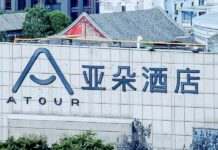The information technology industry now represents 30% of the total market capitalisation of the Stock Exchange of Hong Kong (SEHK), implying a rapid rise from 15% prior to 2018. Yet, it is essential for Hong Kong to further attract company listings in different technology sectors.
Since October 2022, the SEHK has been seeking public views on its proposed listing regime for “specialist technology companies”, which are companies engaging in:
(1) next-generation information technology;
(2) advanced hardware;
(3) advanced materials;
(4) new energy and environmental protection; and
(5) new food and agricultural technologies.
The objective is to allow these types of companies to apply for listing on the SEHK main board even if they cannot satisfy the usual profit, revenue and cash flow criteria. The SEHK may update acceptable sectors of the new listing regime from time to time.
PROPOSED LISTING REQUIREMENTS
Proposed are two types of specialist technology companies, namely “commercial companies” – meaning those that have commercialised their technology products with a revenue of at least HKD250 million (USD32 million) for the most recent audited financial year – and “pre-commercial companies”, meaning those that have not met this revenue threshold.

Managing Partner
LC Lawyers
There are no profit or cash flow requirements for either type, but each specialist technology company must have at least three financial years of operation (with R&D activities) under substantially the same management prior to listing. There should also be ownership continuity and control of the company in the 12 months prior to its listing application.
The minimum market capitalisation of a commercial company and a pre-commercial company is proposed to be HKD8 billion and HKD15 billion, respectively. The R&D investment of a commercial company should constitute at least 15% of its total operating expenditure for each of the three financial years prior to listing, while the percentage for a pre-commercial company is 50%.
Independent pre-IPO investments could help mitigate public concerns over the difficulty in valuing specialist technology companies. Thus, the SEHK proposes that each company should have received investments at least 12 months prior to its listing application from at least two sophisticated independent investors, each holding shares or securities convertible into shares equivalent to 5% or above of the company’s share capital at the time of the listing application (pathfinder investors).
The prescribed minimum equity holding by all sophisticated independent investors varies from 10% to 25%, depending on whether it is a commercial company, and its market capitalisation expected at listing.
As an additional requirement, each pre-commercial company should have available working capital (including IPO proceeds) to cover at least 125% of its costs for the next 12 months.
LISTING IPO REQUIREMENTS
The SEHK expects the share offer of a specialist technology company to include both a placing tranche and a public subscription tranche and to be of a meaningful size. The minimum free float (being shares not subject to any disposal restrictions) should be HKD600 million (USD76.7 million) or more on listing. At least 50% of the total number of shares offered in the IPO of a specialist technology company must be allocated to independent institutional investors.
The SEHK also proposes a new initial retail allocation and clawback mechanism. The minimum retail allocation is initially 5% of the total offered shares, and should be increased to 10% if the public subscription tranche is oversubscribed by 10 times but fewer than 50 times, and to 20% if the oversubscription is by 50 times or more.
A pre-commercial company must disclose in its listing document the key stages and milestones for its specialist technology products to achieve the proposed commercialisation revenue threshold of HKD250 million.
POST-IPO LOCKUP PERIODS
Certain pre-IPO shareholders of specialist technology companies are subject to longer lockup periods (i.e., periods in which the disposal of shares is restricted or prohibited) compared with most types of main board listing applicants.
Key people, including founders, beneficiaries of weighted voting rights, executive directors, senior management and key personnel responsible for technical operations and/or the R&D, are subject to non-disposal restrictions of 12 months for a commercial company and 24 months for a pre-commercial company. The same lockup requirements are to apply to controlling shareholders.
Pathfinder investors will be subject to lockup periods of six months and 12 months for a commercial company and a pre-commercial company, respectively.
The applicable lockup period is generally at least six months for a cornerstone investor who subscribes for offer shares in the IPO.
STAR MARKET COMPARISONS
Metaverse, new food and new agricultural technologies are included in the suggested acceptable sectors of Hong Kong’s new listing regime, but are not currently in the allowed scope of the Star Market in Shanghai.
The proposed Hong Kong market capitalisation requirements are higher than those for the Star Market, and are also higher than the New York Stock Exchange, the Nasdaq Global Select Market, the Singapore Main Board and the London Stock Exchange.
For a Star Market applicant without revenue and profit, its main products or businesses are required to be approved by national government authorities, have a big market, and currently have achieved milestone progress. Most of the other applicants are subject to R&D requirements different from the proposed Hong Kong regime, e.g., R&D personnel headcounts must not be less than 10% of a Star Market applicant’s total number of employees.
Rossana Chu is the managing partner at LC Lawyers

LLP is an independent law firm,
and the Hong Kong law firm member of the EY global network,
in collaboration with other law firm members.
Suite 3106, 31/F One Taikoo Place
979 King’s Road, Quarry Bay, Hong Kong
Tel: +852 2629 1768
Fax: +852 2956 1980
E-mail:




























